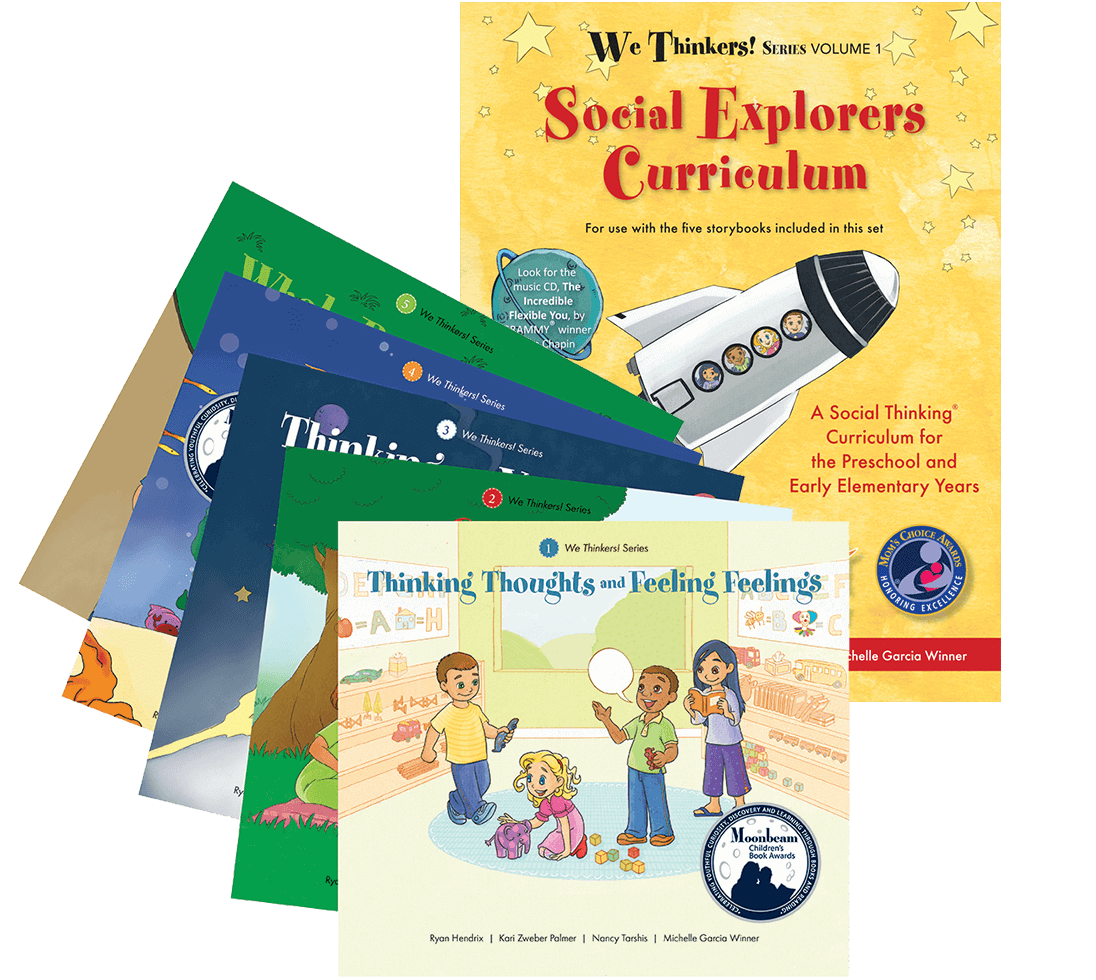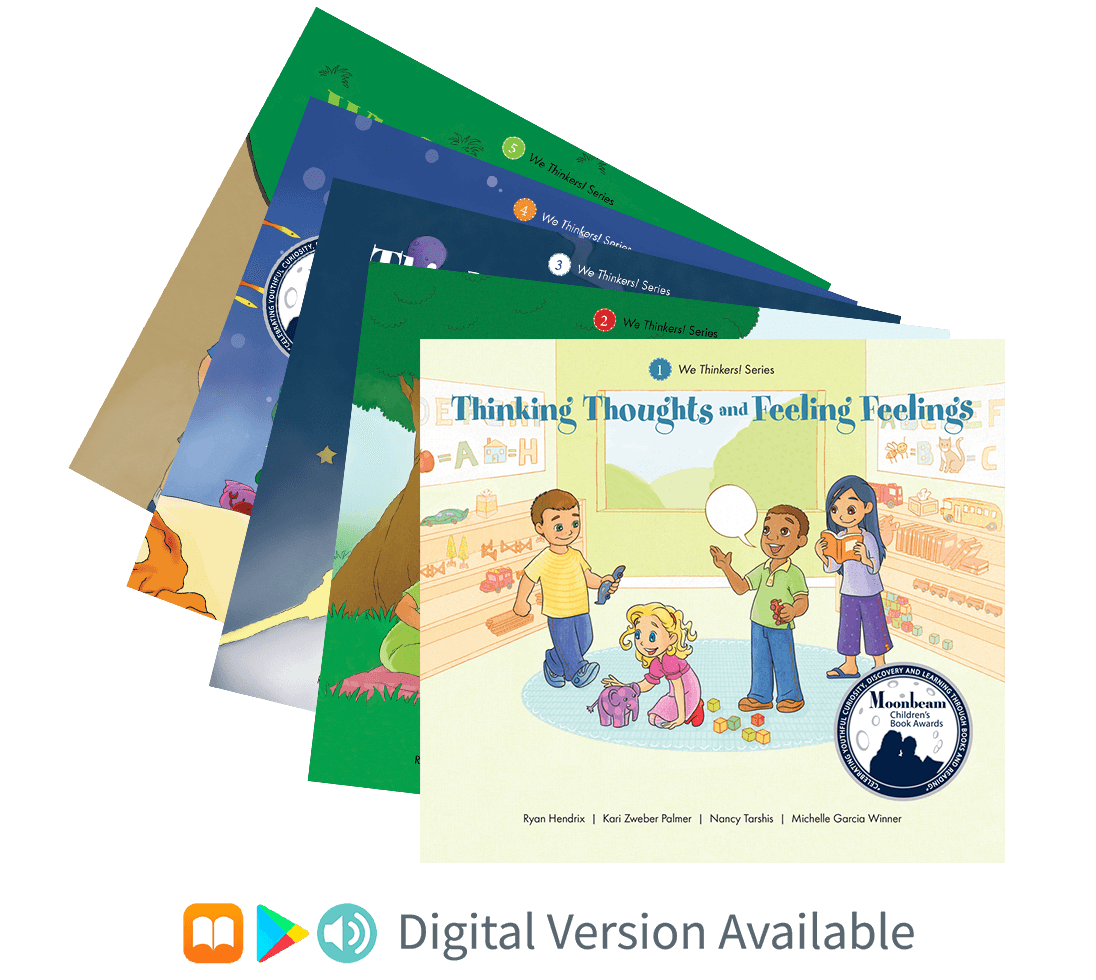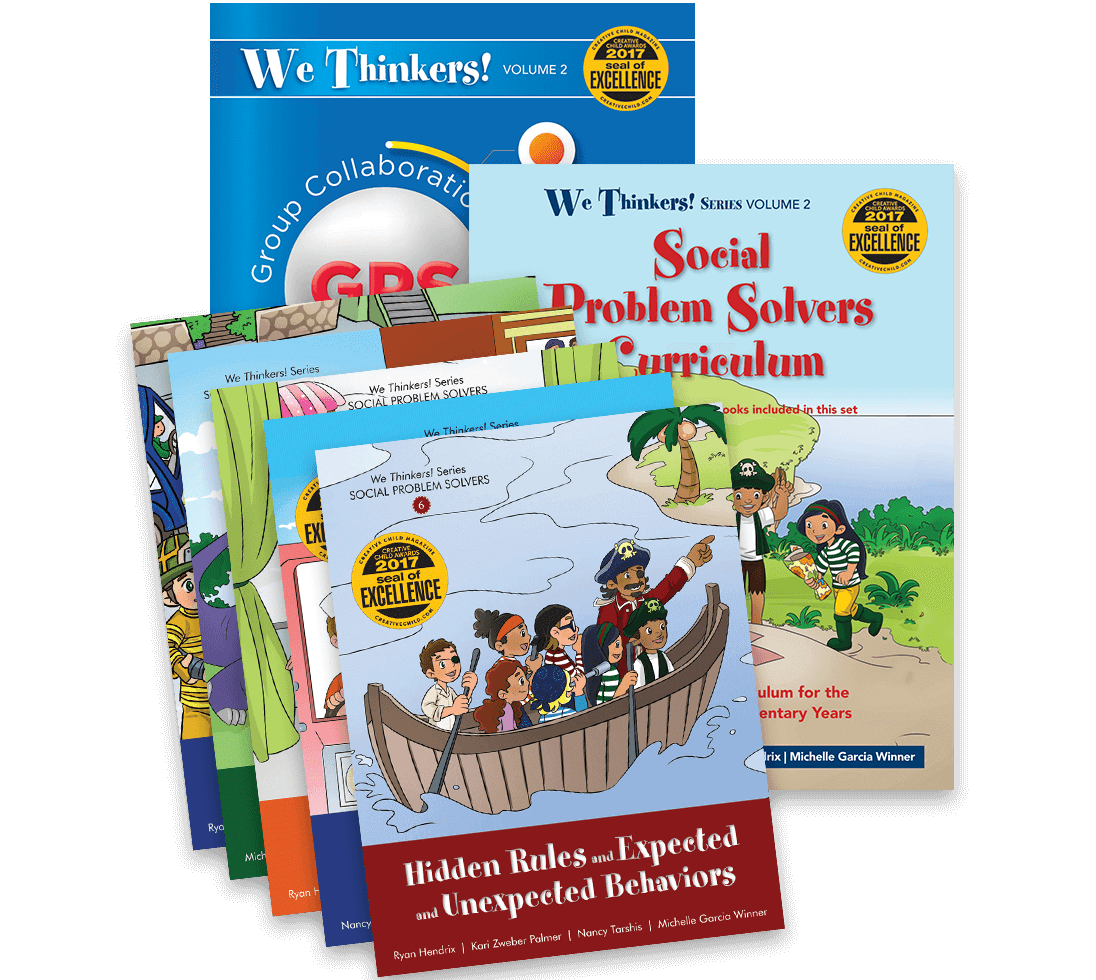Kari Zweber Palmer is a speech-language pathologist and social-cognitive therapist at her private practice, Changing Perspectives, in Excelsior, MN. She has co-authored, with Michelle Garcia Winner, Ryan Hendrix, and Nancy Tarshis, We Thinkers! Volume 1 Social Explorers and We Thinkers! Volume 2 Social Problem Solvers. Additionally, Kari consults with school districts on implementing Social Thinking into their programming.
Kari's interest in communication and related disorders began long before she studied it formally. Her mom, Jane, is a speech-language pathologist and Kari grew up in the field. Kari received her bachelor’s degree from the University of Missouri and master’s from the University of Kansas. Following her formal training, she started her career as a speech-language pathologist in the public schools in Minnetonka, MN, working predominately in the early childhood and elementary levels.
Kari's interest in Social Thinking® was first ignited in graduate school when she was encouraged to facilitate a "social skills" group for teens. As she attempted to pull together a lesson plan for the group, she quickly realized she had no idea how to truly teach social thinking. Discovering Michelle's work made all the difference, as she found information that concretely explained what to do and more importantly, why. Finding herself increasingly fascinated with Social Thinking, Kari researched and wrote "The Double Interview: Assessing the Social Communication of Adolescents with Asperger Syndrome" for her master’s thesis. Department faculty at the University of Kansas awarded her the Margaret C. Byrne Saricks Graduate Research Award for demonstrating excellence in master’s thesis research.
Kari worked as a full-time therapist at Michelle Garcia Winner's Center for Social Thinking in San Jose, California. Her diverse caseload included preschool children to young adults. Kari had the good fortune of training directly with Michelle and co-treated a teen group with her each week.
Kari is an active presenter and likes nothing better than to share the power of Social Thinking with others. Comments from past workshop participants include: "Kari was engaging, enthusiastic and obviously passionate about the topic. She was not only knowledgeable but balanced the information with real-life examples and humor."
Click here to download Kari's CV
Personal
Kari can usually be found chasing after her kids, thinking about training for another triathlon with her husband, and enjoying the lakes of Minnesota. She loves to travel and considers her experiences with an infant on an airplane the most interesting social experiment.
Financial Disclosure
Financial: Author/speaker for Think Social Publishing, Inc., and receives speaking fees and royalty payments.
Non-financial: No relevant non-financial relationships exist.









